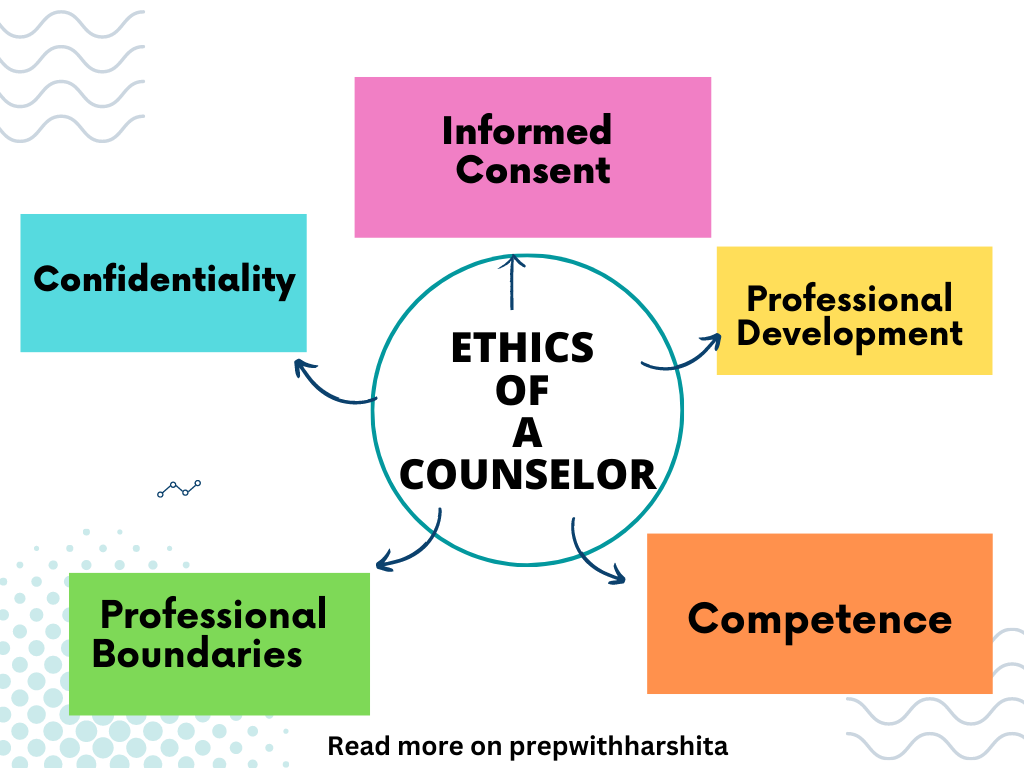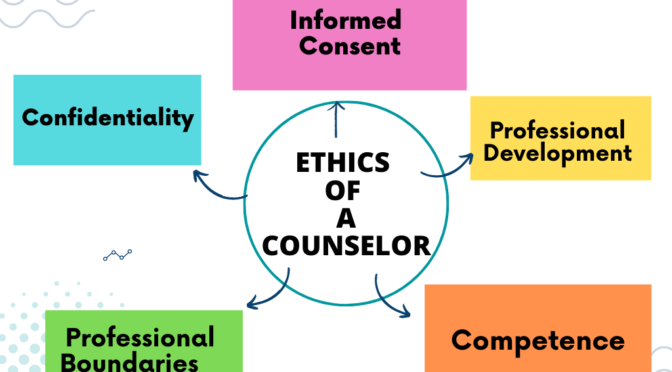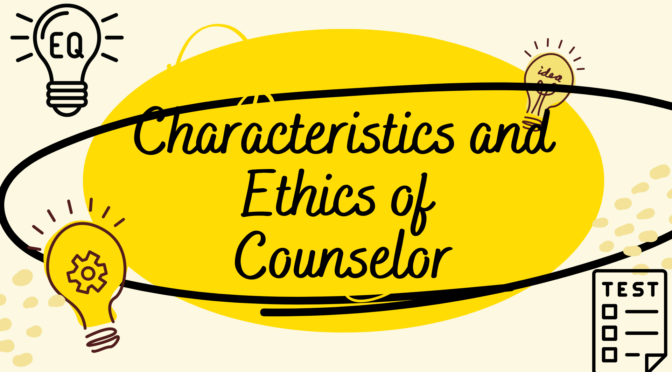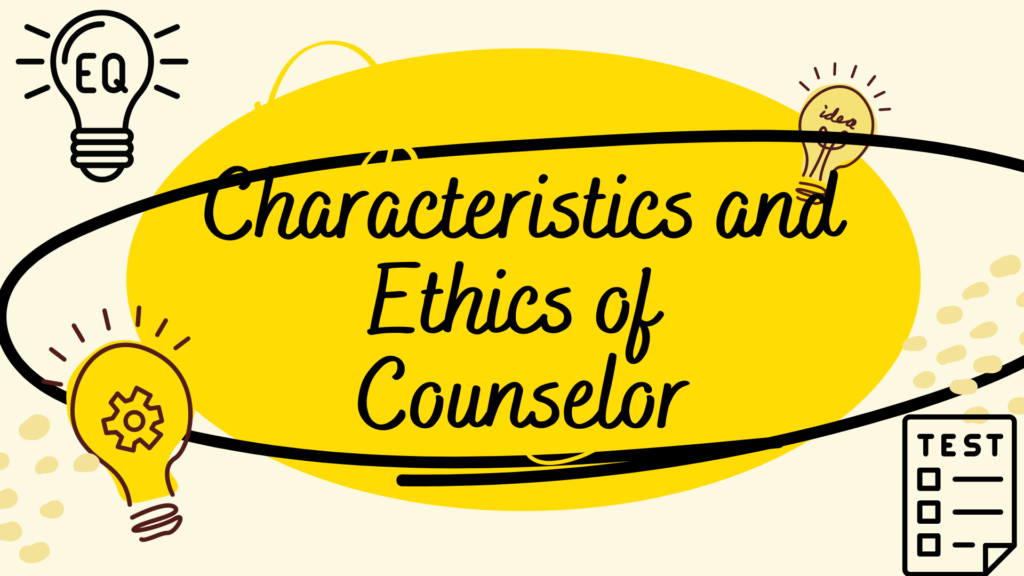A counselor is a trained professional who provides therapeutic support and guidance to individuals, couples, families, or groups facing various challenges and issues in their lives. The ethics of a counselor or therapist are of utmost importance as they guide the professional conduct and behavior of these individuals in their therapeutic practice.
Here are some key ethical principles that counselors typically adhere to:
- Confidentiality: Counselors have a legal and ethical duty to protect the confidentiality of their clients. They must not disclose any information shared by clients during counseling sessions. Unless there is a legal requirement or a clear and imminent threat to the client or others. Counselors should discuss the limits of confidentiality with clients at the beginning of the therapeutic relationship. It ensure a mutual understanding.
- Informed Consent: Counselors must obtain informed consent from clients before providing any counseling services. This involves explaining the nature and goals of counseling, the counselor’s qualifications, the methods used, the potential risks and benefits, and the client’s rights. Informed consent ensures that clients have the necessary information to make autonomous decisions about their treatment.
- Competence and Professional Development: Counselors are expected to possess the necessary knowledge, skills, and training to provide competent counseling services. They should stay informed about current research and best practices, engage in ongoing professional development, and seek supervision or consultation when needed. Maintaining competence is crucial for providing effective and evidence-based care.
- Multicultural Competence and Non-Discrimination: Counselors should strive to provide culturally sensitive and inclusive counseling services. They should be aware of their own biases, prejudices, and assumptions and actively work to eliminate discrimination in their practice. Multicultural competence involves understanding and respecting diverse cultural, ethnic, and social backgrounds and adapting counseling approaches accordingly.
- Professional Boundaries: Establishing and maintaining appropriate boundaries is vital in the therapeutic relationship. Counselors must be aware of power dynamics and avoid any exploitation, dual relationships, or conflicts of interest that may harm the client or compromise objectivity. They should maintain professional boundaries to ensure the focus remains on the client’s well-being.
- Duty to Warn and Protect: In situations where a client poses a serious threat to themselves or others, counselors have a duty to warn or protect potential victims. This may involve breaching confidentiality to ensure the safety of individuals who may be in danger. However, the process should be approached carefully and in accordance with legal and ethical guidelines.
- Ethical Decision-Making: Counselors often encounter complex ethical dilemmas in their practice. Ethical decision-making involves carefully considering the potential consequences of different courses of action, consulting with supervisors or colleagues, and following ethical guidelines and legal requirements. Counselors should strive to act in the best interest of their clients while upholding ethical standards.
- Professionalism and Integrity: Counselors are expected to demonstrate professionalism, integrity, and respect in their interactions with clients, colleagues, and the community. They should maintain high standards of ethical conduct, honesty, and accountability. Professionalism includes timely and accurate record-keeping, appropriate use of technology, and adhering to relevant laws and regulations.
- Self-Care: Counselors have a responsibility to take care of their own well-being and seek support when needed. By maintaining their own physical, emotional, and mental health, counselors are better equipped to provide effective care to their clients.
These ethical principles, when integrated into counseling practice, help ensure that clients receive competent, respectful, and ethical care while protecting the integrity of the counseling profession. Counselors are encouraged to familiarize themselves with the specific ethical codes of their respective associations or regulatory bodies. Also, engaging in ongoing ethical reflection and self-assessment.
Also Visit: Prep with Harshita

Also Read: Factors Affecting Mental Health





